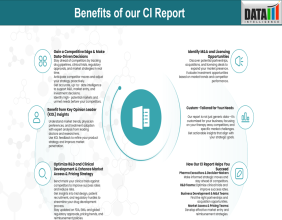Highlights
Lloyds Banking Group (LLOY) and London Stock Exchange Group (LSEG) fell over two percent after quarterly results
Cybersecurity issues impacted Marks & Spencer (MKS), pushing it to the bottom of the FTSE 100 performers
Commodity firms weighed down by falling oil and gold prices, while St. James’s Place (STJ) led the gainers
The financial sector remained a key focus during the latest trading session, with the FTSE 100 registering a modest gain. The benchmark index hovered marginally higher amid a volatile mix of earnings announcements, commodity price movements, and cybersecurity concerns.
The FTSE 100 index recorded a slight uptick in midday trade, with only a handful of its top constituents in positive territory. A subdued export performance and earnings-related developments shaped the tone of the market session.
Lloyds and London Stock Exchange See Post-Update Declines
Lloyds Banking Group (LSE:LLOY) saw its share price decline after reporting its quarterly financials. While the figures broadly aligned with expectations, they came in marginally under forecast, leading to a reduction in market sentiment. The move coincided with broader speculation that monetary policy adjustments could arrive sooner than previously thought.
Similarly, London Stock Exchange Group (LSE:LSEG) experienced a notable decline. The firm’s earnings update did not significantly exceed forecasts, and shares slipped following the release. Both companies ranked among the weakest performers within the index for the session.
Commodity-Linked Stocks Mixed Amid Oil Price Recovery
Commodities stocks including Shell (LSE:SHEL) and BP (BP.) traded slightly lower after an early slump in oil prices. Brent crude, which had flirted with breaking below key support levels, later recovered part of its losses. However, the day’s overall price action remained negative, limiting gains for energy players.
Rio Tinto (RIO) and BAE Systems (BA.) were also in the red during the afternoon session, although their losses remained contained within a narrow band. The sector’s broader performance stayed cautious, reflecting uncertainty in global demand indicators.
Cyber Attack Continues to Impact Marks & Spencer
Marks & Spencer (MKS) remained under pressure after disclosing further operational disruption due to a ransomware incident. The company reported continued delays in fulfilling online orders, which have remained paused since the previous week. Additionally, all digital job postings were removed from its site.
This incident placed the retailer at the bottom of the FTSE 100 leaderboard. The company confirmed that law enforcement, including the Metropolitan Police, had been engaged in the matter. News also emerged that Co-op, another grocery chain, had to disconnect parts of its IT infrastructure after a separate cybersecurity attempt, although its stores continued to operate.
Healthcare Names Weaken Following Earlier Results
Pharmaceutical firms AstraZeneca (AZN) and GSK (GSK) saw their shares fall by over one percent. The declines followed their earnings disclosures earlier in the week. While detailed financial data had already been digested by the market, price movement suggested a muted response to their reported metrics.
Top Gainers Led by St. James’s Place and Whitbread
Among the strongest FTSE 100 performers, St. James’s Place (STJ) led the way, although no specific update accompanied the movement. Whitbread (WTB) posted a gain, supported by cautious sentiment and a share buyback announcement. Homebuilder Persimmon (PSN) also traded higher after issuing a trading statement that pointed to steady operational activity.
_01_09_2025_07_01_12_631371.jpg)


